Food film about West Cork artisan sends a vital message
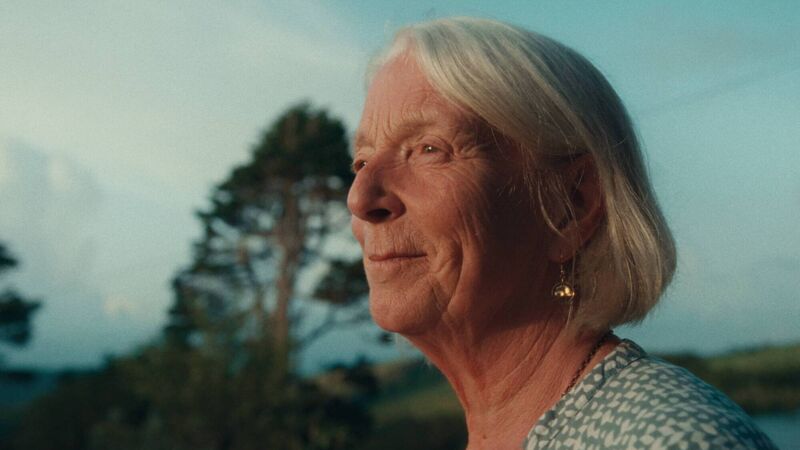
Sally Ferns Barnes in a still from the new film The Keep
Ireland is no stranger to the art of storytelling and its ability to leave indelible marks on our hearts; even, to change minds.
In 2023, a crew of seven Italian filmmakers arrived in West Cork to live alongside one of Ireland’s greatest food artisans, Sally Ferns Barnes of Woodcock Smokery.
For several weeks, they immersed themselves into Sally’s world, a world bound to the fate of the wild Irish atlantic salmon.
The result is a short film, The Keep, just 17 minutes long, wielding the power to change minds forever about what we eat, who makes it, who sources it, and how the food we consume can be a singular act of power every single day.
The film premiered in Ireland in November at an exclusive screening as part of the 69th Cork International Film Festival. Thirty-five lucky ticket holders gathered at another great Cork institution, L’Atitude 51, as Sally’s story – which is also the story of the wild Irish salmon – was exhibited for us all to see.
Barnes, the film’s director Federico Conti, and Marta Grillo (one of the producers) were present, as was Aishling Moore of pioneering sustainable fish restaurant, Goldie.
As a gathering, we were there to celebrate artisanship, the artisans, and, after, to taste a selection of Woodcock Smokery’s finest produce assembled by Moore.
I spoke to Sally, Aishling, Federico and Marta about how The Keep is changing minds.
Sally Ferns Barnes, Woodcock Smokery
“It’s a bit daunting looking at yourself on a screen,” says Sally, “but they made such a beautiful film.
“It’s exactly what I’d want other people to see Ireland is like - in the sunshine with our salmon fishermen doing their thing. I am so happy with the film because I think it tells it all.”
Given the tragedy of the Irish wild atlantic salmon’s demise, the film still captures a sense of immeasurable hope for its future.
“It is positive, which is important. There is hope, and it lies in the young people. If Federico can make more documentaries about older people like me, then maybe the skills, the art, the practice can be preserved for future generations. We do have wisdom, and we want to share it, but there is a limit to how many years I can keep teaching and passing it on that way. A film like this becomes a resource.
“I hope The Keep can be screened in schools because we should be educating young people that it’s possible to live in a coastal community, you just have to create change.”
Aishling Moore, Goldie
“When I heard a film like this was coming out about Sally, I felt heard and seen all at the same time! So many other people will learn from watching it; anyone lucky enough to get the chance to meet Sally and spend time with her quickly understands how important she is. To be able to share that with people is exciting.
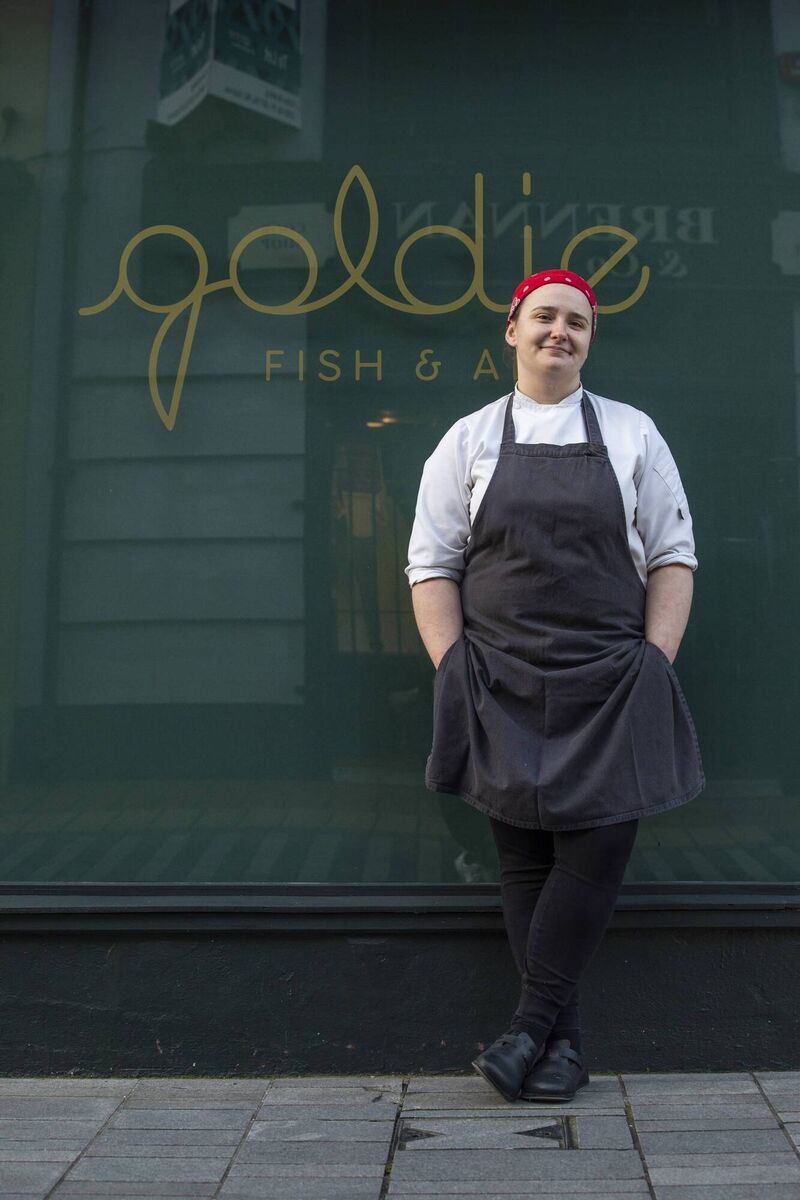
“Working with only wild fish in the way she does means what she makes can only go so far. It’s never going to have mass access, but this film does, and I think that’s important for someone who is doing something so small. It says the business can be small, but the message can be global. Small producers matter, and they have such impact. All chefs, restaurants, everyone who eats and buys food, should be supporting artisans like Sally, because if we don’t and they disappear, all we’ll be left with is a sterile, boring food place and space.”
Federico Conti and Marta Grillo
Federico made his directorial debut with The Keep and is co-founder of Be.Polar film studio. Marta is a producer and connected Federico with Sally.
“I met Sally in 2016 at Terra Madre in Turin, an event organised by Slow Food,” explains Marta. “My parents have hosted delegates from all over the world over the years, and that year we hosted Sally. My parents don’t speak English, but they are able to communicate through food. It moved me to understand that food is power; power to connect with ourselves, to understand ourselves, and to think about how the culture we build passes between food.
“We had read a lot of articles [about Sally] and we understood that we needed to share this story. When Federico told me about his project, I immediately told him about Sally.”
Federico has been involved in film production for a decade, but The Keep signals his debut as a director.
“I was interested in developing a new editorial line focused on documentaries, in particular about artisanal stories and local communities because I think that the most powerful stories come from the underground and bring with them important and universal messages,” says Federico.
“We approached this film by focusing on telling the story of an artisan, but also the story of a powerful, strong, independent woman who embodies a real philosophy of living, food, her country, and her work with salmon.
“The challenge was how to condense more than 40 years of story and work of a person in a few minutes; also, how to condense more than 15 hours of shooting and four hours of interview! We decided to push different levels of storytelling – of Sally’s life and to introduce the stories of the fishing community,” explains Federico.
“We wanted to make a film that doesn’t bring judgements or answers, but instead encourages the viewer to ask more questions - to have a film that begins when it finishes.”
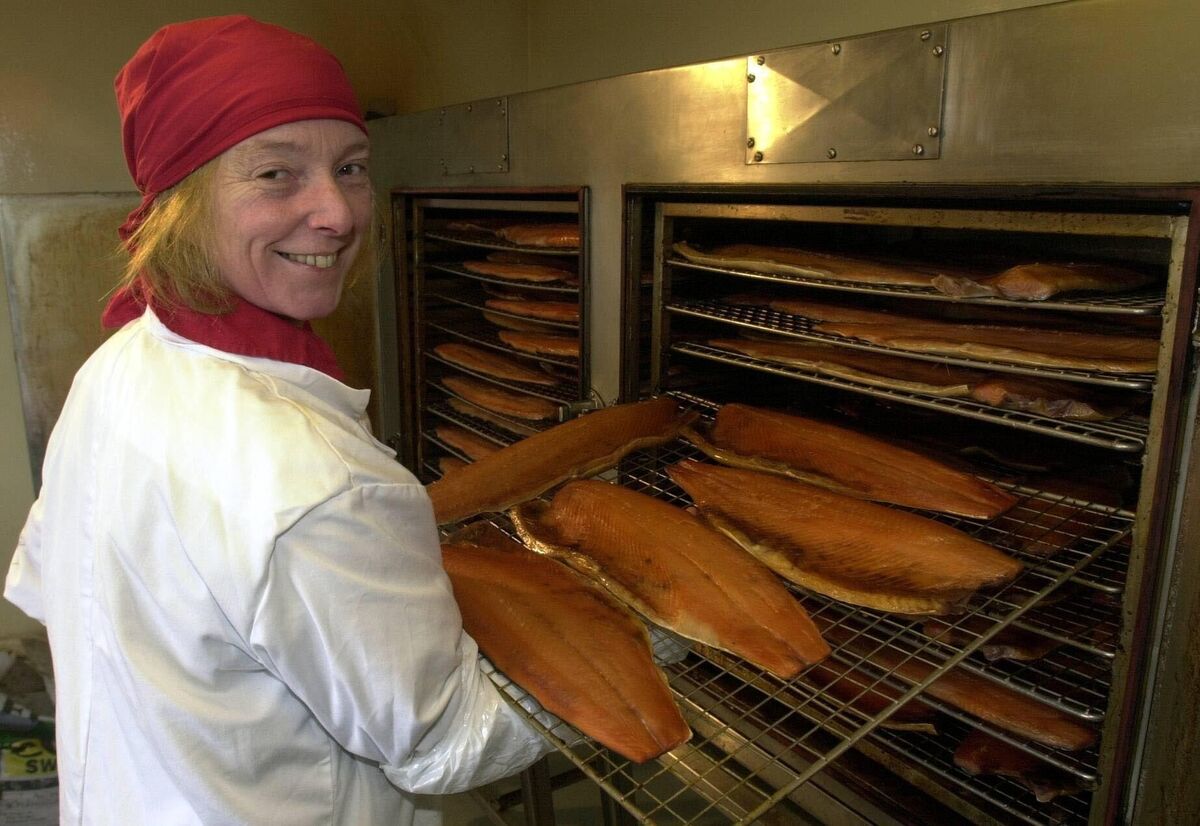
Food, says Federico, can say so much.
“Food is very powerful for telling stories because it’s a mirror of our time and of us. It can tell us about the state of our country, our community, of power relations. It can tell us who we are and where we are right now in this moment, and where we are going.”
Anyone who spends time with Sally will come away a changed person. My own experience speaks to that. Since I began telling the story of Sally’s activism, as well as her artisanship at Woodcock Smokery, I have stopped consuming farmed salmon entirely.
Marta says that young people are told what food is healthy but are not educated as to how it gets from farm to fork.
“Salmon is a trendy food now. We think we are healthy, going to the gym and eating a lot of salmon, but it’s not wild salmon. We may want a food from some other part of the world, but it’s not food that comes from where we are. It’s OK that we can share food and that different foods travel, but we have to change the way in which we consume food.”
Marta and Federico no longer eat farmed salmon anymore, “because we feel guilty”, she says, and because they can’t unknow the knowledge Sally has awakened in them about farmed salmon and its catastrophic environmental impacts.
Federico and Marta are changed people since spending time with Sally and have come away with a strong sense of the importance of cherishing and protecting the food cultures and heritage that have lost importance to younger generations.
“Marta’s parents come from the south of Italy and my parents come from the north, but both parents have family traditions focused on food and cuisine,” says Federico.
“I still remember my grandmother’s and grandfather’s classic recipes, but our generation, when we were younger, we couldn’t understand the importance or value of that part of tradition.
“As a director, what changed for me after completing this project, is the direction I want to take for my film-making into the future. I always dreamed about making fiction film and Hollywood, but since thinking about documentaries - in particular working on The Keep, I realise – as a director and a producer – we are interested in truth.
“In this moment, truth is in short supply, and as young people, it’s our duty to try and do our best to preserve traditions, knowledge and share that with our work.”
Just before the Cork premiere of the film, The Keep was named winner of the Agostini Award 2024 at the Glocal Doc festival of journalism in the picturesque city of Varese, north of Milan.
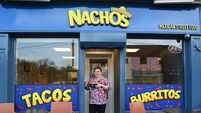
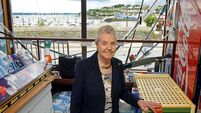

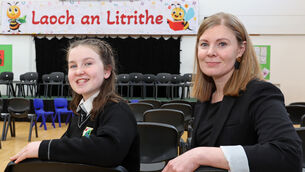



 App?
App?


